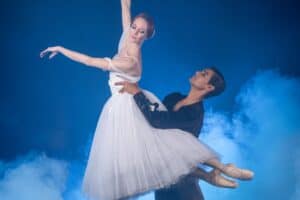Television adverts utilise it. Those who have fallen head over heels in love manipulate it to their advantage. The Internet is riddled with it, in some form or other. And yet, in all history of poetry, no one can seem to figure out what rhymes with "orange".

Lebohang Nova Masango is a poet who made her name by penning poignant pieces such as To Do List For Africa and A Love Supreme: A Lesson In Poetry. Can she pinpoint what has made poetry such a global phenomenon?
“The rise and expansion of the information age means that poetry is now more accessible to people, so the audience has certainly broadened,” suggests Masango.
“It also means that people who hadn’t really considered poetry before have seen that it is malleable and can be adapted – written and performed – according to individual tastes. But the most obvious reason is because poetry is genuinely amazing and it just originates from that very human desire to tell and share stories. It’s an entertaining way to share knowledge. Poetry has been with us for a very long time, whether through griots or bards, it survives through rappers and poets. The Internet just made it bigger than it already was.”
Natalia Molebatsi is another high-profile local poet who will grace the stage at this year’s Johannesburg Arts Alive festival, taking place until the end of September. Besides being entertainment, what other roles does she think her craft fulfills?
“I don’t think that poetry’s role is to entertain, although it fulfils that role well,” notes Molebatsi.
“Poetry is there to open up a soft space within humanity and to relax the mind. Poetry is there to enhance our ability to think creatively and to think independently; to form our own opinions. The main role for poetry in my view is to inform and to affirm humanity,” she adds.
Molebatsi has put together an anthology called We Are, where she and fellow poets collaborated on a number of offerings. How important is it for like-minded artists to collaborate regularly?
“Collaboration makes one grow, because your work and craft are affirmed, improved and critiqued by the others,” explains Molebatsi.
“Also, with We Are for example, when a reader picks it up, they can indulge in a variety of voices from across the rich tapestry of South Africa and its experiences. Those interested in poetry get about 20 different voices, instead of only one. They then have the opportunity to look for the individual works of the writers assembled in the book. The book also represents our voices in a compact manner that can show a glimpse of our poetry around South Africa and beyond our borders,” says Molebatsi.
Poets love to believe that their craft is still “underground” and appeals only to barefoot Woodstock and Braamfontein hipsters, even though this is no longer the case. How critical and easy is it for mainstream poetry to catch on at festivals like Arts Alive?
“Considering that poetry is an amazing and dynamic art form just like music or dance is, I should say that it’s relatively easy,” asserts Masango.
“Arts Alive, being an art festival, has organisers who are aiming to deliver a holistic experience to its patrons and poetry lovers certainly ought to be catered for. Poetry is definitely the thinking person’s cup of tea, so unless it is aligned to the consumerism that currently defines popular culture, it is bound to be regarded as exclusive.
“The poetry that I am drawn to is interested in introspection and questions of social justice and it’s rather an academic art which requires a passion for the literary. People who are that way inclined are its biggest proponents and obviously, that’s a minority. Poetry can only excel where there is a reading culture.”
Support Local Journalism
Add The Citizen as a Preferred Source on Google and follow us on Google News to see more of our trusted reporting in Google News and Top Stories.









